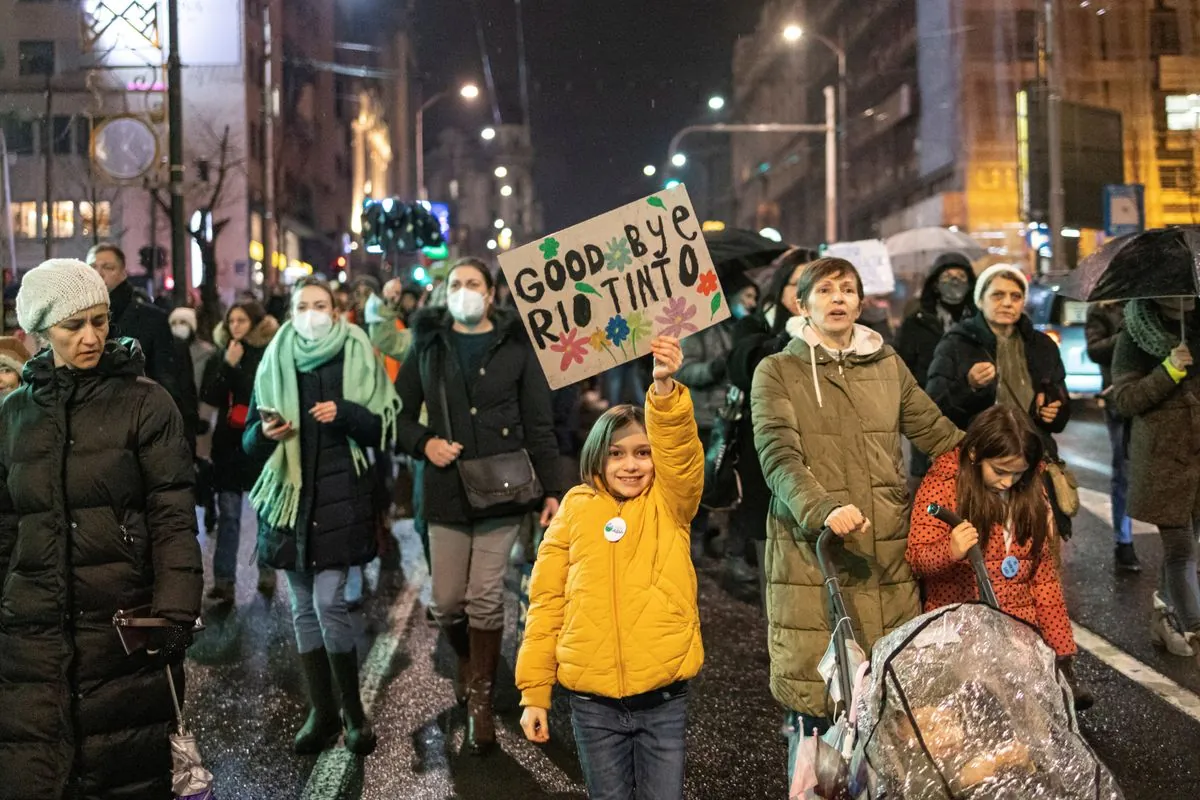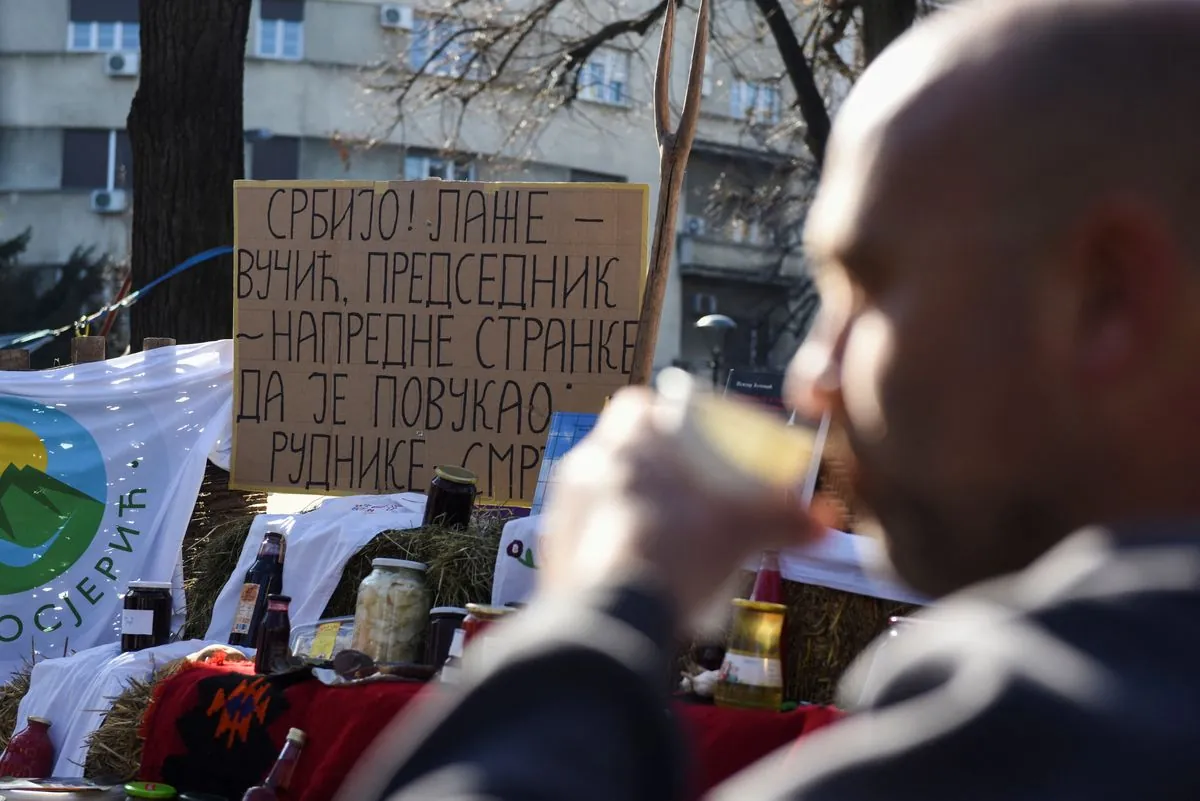Thousands Rally in Belgrade Against Crackdown on Environmental Activists
Protesters in Belgrade accuse the government of suppressing opposition to a major EU-backed lithium mining project. The demonstration highlights tensions between economic development and environmental concerns in Serbia.

In a significant display of public dissent, thousands gathered in Belgrade on September 1, 2024, to protest what they perceive as a government crackdown on environmental activists. The demonstration, held outside the state-run RTS television station, underscores growing tensions surrounding a proposed lithium mining project in western Serbia.
The protest comes in the wake of multiple rallies held in recent weeks against the planned lithium excavation. Nina Stojanovic, an activist at the event, reported that between 30 to 60 individuals had been detained or questioned over the past two months across Serbia. Environmental groups claim that activists have faced home searches, confiscation of electronic devices, and online threats following a major demonstration on August 10, 2024.

The contentious lithium mining project, backed by the European Union, is planned for the Jadar valley near the Bosnian border. Environmental organizations argue that the mine could cause irreversible damage to the region's ecosystem, including water resources and fertile land. Serbia possesses one of the largest lithium reserves in Europe, and the Jadar Valley, named after the Jadar River (a tributary of the Drina), could potentially make Serbia a leading global lithium producer.
Conversely, government officials view the project as a significant opportunity for economic growth in the developing Balkan nation. Aleksandar Vucic, Serbia's president since 2017, has suggested that the protests are part of a Western-orchestrated plan to remove him from power. This stance reflects the complex political landscape in Serbia, which is formally seeking EU membership while maintaining close ties with Russia and China.
The EU's interest in the project is linked to its Critical Raw Materials Act, which aims to secure strategic mineral supplies and reduce dependency on China. Lithium is crucial for electric vehicle batteries and renewable energy storage, making it a key component in the green transition.
Bojan Simisic of the environmental group Eko Straza questioned the state's approach, asking, "What kind of a state do we live in if they arrest me for saying that the situation in Serbia already is catastrophic?"
The mining project is set to be operated by Rio Tinto, a multinational company founded in 1873. However, Rio Tinto's controversial history, including accusations of corruption, environmental degradation, and human rights abuses, has raised additional concerns among activists and local residents.
As Serbia navigates its path towards EU membership, the country faces the challenge of balancing economic development with environmental protection. The constitution of Serbia recognizes the right to a healthy environment, and environmental impact assessments are mandatory for large-scale mining projects in the EU. However, the ongoing protests highlight the tension between these principles and the potential economic benefits of the lithium mine.
The situation in Serbia serves as a microcosm of broader global debates surrounding resource extraction, environmental preservation, and sustainable development. As the world transitions towards renewable energy sources, the demand for lithium and other critical raw materials is likely to intensify, potentially leading to similar conflicts in other regions rich in these resources.
"We are here to protect everyone, to protect human rights and to be with each other. We have to fight and we can do it."
As the controversy continues to unfold, it remains to be seen how Serbia will balance its economic aspirations, environmental concerns, and geopolitical relationships in the coming months and years.


































